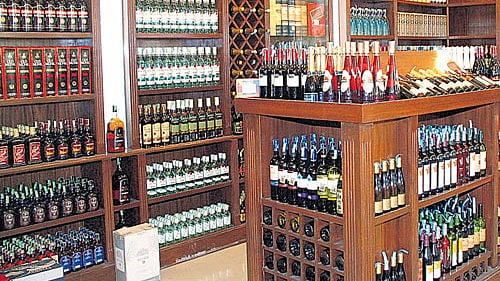
Credit: DH File Photo
Bengaluru: Premium liquor is expected to pour into India - the world’s largest whisky-consuming market - at lower prices from the United Kingdom as import tariffs on whisky and gin are set to be halved to 75% from 150% under the India-UK free trade agreement (FTA). Alcohol industry insiders and experts have mixed views over the FTA’s impact on local players, and await more details.
On an average, shares of several Indian liquor companies dropped by up to 5% on Wednesday, in response to the FTA. Import tax on Scotch whisky and gin will be reduced to 40% over ten years under the agreement.
“This deal may have a short term impact on Indian products in India. However we are confident about the quality of our products and believe we can rise to the challenge. We also hope that this deal will allow better ease of business for Indian products in the UK,” said Paul P John, Chairman, John Distilleries, makers of premium Indian single-malt whiskies.
The FTA is expected to help narrow the price gap between domestic and duty-free scotch, with prices falling in the range of 8-20%, reducing the premium from 31% to 20%, experts say. The move will make such spirits more accessible to Indian consumers, significantly boosting UK’s alcohol exports.
However, sectoral experts are confident of the brand recall and do not see major challenges. “Given the distinct brand recall led by innovations and unique tastes, we believe domestic brands will continue to rise with growth prospects being intact, in the medium-to-long term and may even make pricing competitive to help mitigate the negative impact from Scotch,” said Karan Taurani, Senior Vice President, Elara Capital.
In contrast, Confederation of Indian Alcoholic Beverage Companies (CIABC) has expressed disappointment, flagging dumping concerns. “We only hope that the government has included in the FTA the MIP (minimum import price) which will prevent dumping or under invoicing, and also the removal of non-tariff barriers to ensure better international market access to Indian alcoholic beverages,” said Anant S Iyer, Director General.
The federation also said that states such as Maharashtra, Kerala, Odisha, Rajasthan, Madhya Pradesh and others should review their concessions to imported liquor.
“The organic growth that we are seeing in whisky, in spirits in general, is about 6-7% for volume. Even if premium whiskeys come under pressure, there are a lot of bottom of the pyramid opportunities that are sitting for them to upgrade to their price segments. Hence, there is enough headroom for growth for all,” said Debashish Shyam, Co-founder and Director of Ardent Alcobev.